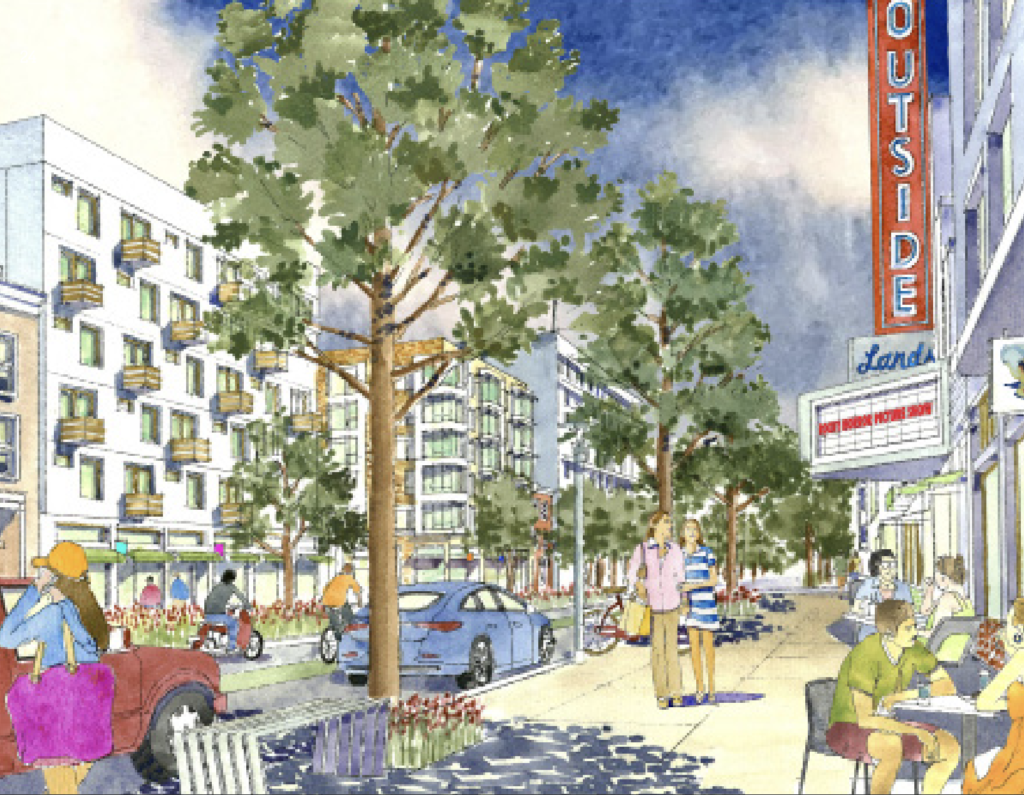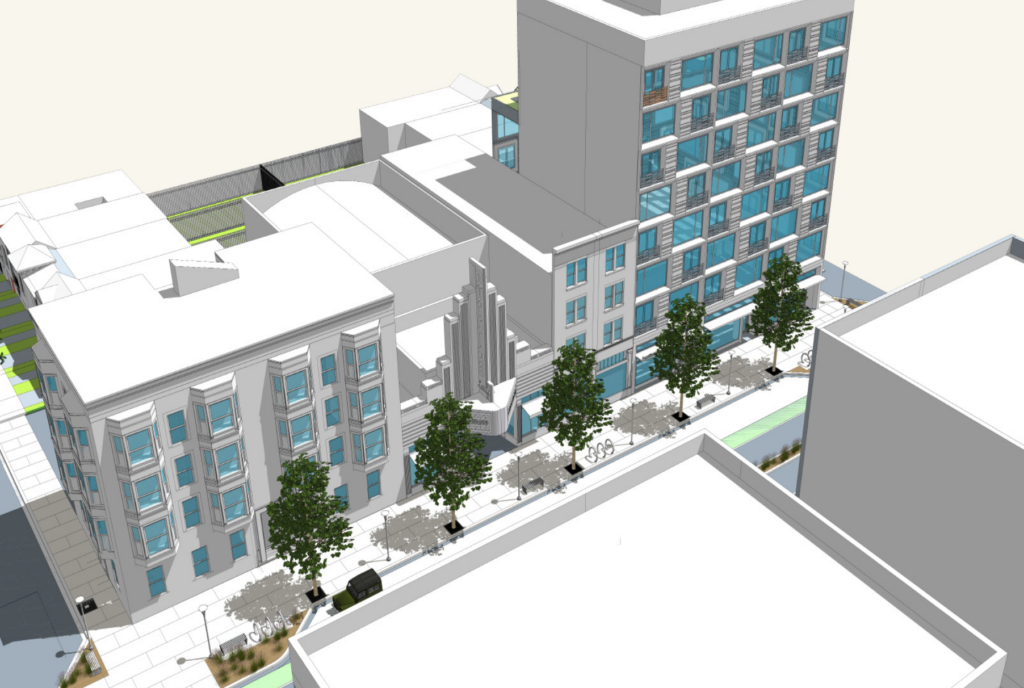>>We need your help! Become a 48hills member today so we can keep up our incredible local news + culture coverage. Just $20 a month helps sustain us. Join us here.
The Planning Commission will hold a hearing Thursday/6 on the latest in the Housing Element rezoning program, including something called Objective Design Standards. It’s a technical term that would on the surface mostly appeal to architects—but it’s actually a serious concern, particularly in commercial corridors with a lot of small, locally owned businesses.
Thanks to state Sen. Scott Wiener and his Yimby allies, San Francisco is required to adopt rules that allow developers to build new market-rate housing without much in the way of community input. The city is supposed to set standards for what is “acceptable” design, and then planners are supposed to stamp any permits that meet the parameters.

In a lot of commercial corridors, the height limits are greatly increased—and the objective standards would allow for buildings that pretty much look the same, and are pretty much ugly, but that’s not the issue.
The problem is that the city’s upzoning, combined with the state’s Density Bonus program, will make almost every lot on, say, Clement Street far more valuable to speculators. Investors can buy lots with a small business tenant and a few housing units above, demolish the existing building, and put up much larger structures with many more high-end units—and the existing small business will be gone.
Let me tell you a story.
My favorite restaurant in the Mission was a place on 24th that had great Salvadoran and Mexican food, at very reasonable prices.
Then a new landlord bought the building, and raised the rent from $4,800 to $7,800 a month. The family-owned and operated restaurant couldn’t possibly pay that much, and is now out of business.
Help us save local journalism!
Every tax-deductible donation helps us grow to cover the issues that mean the most to our community. Become a 48 Hills Hero and support the only daily progressive news source in the Bay Area.

Objective design and density bonuses created the perfect conditions for speculators to buy property, destroy existing small businesses, and make a killing building more market-rate units that the San Francisco workforce, including the small business owners and their workers, can never afford.
Wiener and his pals never included in any of their bills any sort of commercial rent control or protections for existing small businesses.
The one thing that is working, in terms of the local economy, these days is thriving neighborhood commercial corridors. The Objective Design Standards and Density Bonus Plans put them at risk.
That meeting starts at noon.
Bad law-enforcement behavior continues to cost the taxpayers. In the latest case, the City Attorney’s Office is asking the supes to approve a settlement of $500,000 to Vincent Bell, who has been sitting in SF county jail for 11 years awaiting trial on charges that he provided a gun used in a homicide case.
Bell has only one leg; the other was amputated. He uses a wheelchair. But at one point, his lawsuit against the city alleges, sheriff’s deputies used excessive force to get him out of his cell, and then forced him to hop on one foot some distance to another cell. He also alleged sexual harassment.
From Prison Legal News:
Once handcuffed, Bell was lifted to his remaining leg and ordered to hop from his cell to a safety cell. As U.S. District Judge Susan Illston later verified, surveillance video and other evidence showed Bell was forced to hop over 21 yards – a total of 64 feet – on his one leg. Williams refused to give him a rest, and Bell finally collapsed to the floor.
“Members of SORT then employed a torture tactic known as Strappado, wherein the deputies dragged Mr. Bell, who was face-down, into the safety cell by his arms, handcuffed wrists, and leg while he suffered in pain,” according to the complaint he later filed. Once in the cell, Bell was stripped naked and left for 24 hours.
A jury awarded him $1.1 million, including attorney’s fees. The city could, of course, appeal, and the settlement means that San Francisco taxpayers will cough up half a million to make this go away.
That will go soon to the Government Audit and Oversight Committee. At some point, the Budget and Legislative Analyst ought to do a study on how much money bad policing has cost the city in the past decade; it’s a lot of money—particularly for the Police and Sheriff’s Departments, which are demanding huge budget increases.






